Full Text Searchable PDF User Manual

CLICK TO CHANGE TEXT
1
BRUSH CUTTER
EN
OWNERS MANUAL
PGBC-5200

3
2
INTRODUCTION
CONTENTS
This manual has been produced by Parker Products Ltd. and should be kept with the
product and referenced for operation, maintenance and troubleshooting.
This manual contains an overall description of the product, together with all the
necessary information for using the product correctly and safely. It is highly
recommended that this manual is read prior to any operation or maintenance of this product.
The safety precautions and warnings are to ensure your safety and protect you from harm or
damage to the product.
All photographs and drawings in this manual are supplied by Parker Products Ltd. to help you
with the operation and maintenance of the product. The information contained in this manual
was accurate at the time of production, however Parker Products Ltd. may make modifications to
the product without notification.
GENERAL SAFETY ..................................................................................
4
SAFE OPERATION ...................................................................................
5-9
WHAT'S IN THE BOX .............................................................................
10-11
ASSEMBLY ....................................................................................................
12-13
INSTALLING THE 3 TOOTH BLADE
...............................................
14-15
INSTALLING THE SPOOL
.....................................................................
16
WEARING THE HARNESS
....................................................................
17
STARTING THE ENGINE
........................................................................
18-21
STOPPING THE ENGINE
.......................................................................
22
OPEN & REPLACE SPOOL WIRE
....................................................
24-25
ADJUSTING THROTTLE CABLE & IDLING SPEED ............
26
OPERATION .................................................................................................
28-31
TROUBLESHOOTING ...................................................................................
32-35
MAINTENANCE & CARE
.......................................................................
36-38
SPECIFICATIONS .....................................................................................
40
DECLARATION OF CONFORMITY .............................................
41
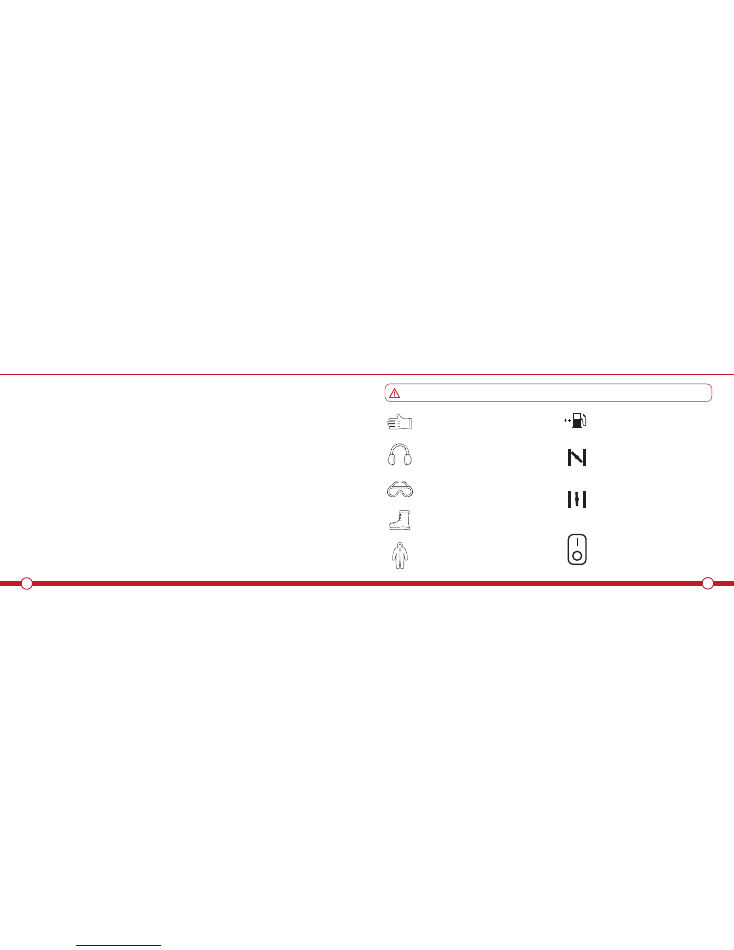
4
5
GENERAL SAFETY
•
WARNING
! Never allow children or anyone to fully understand the directions given in the manual to use the machine.
•
ALWAYS USE
safety equipment; appropriate footwear, eye protection, ear protection, head protection, trousers and gloves.
•
DO NOT
wear loose clothing, jewellery, short trousers, sandals, or go barefoot.
•
NEVER
start the engine inside a closed room or building.
•
NEVER
use the product when ground is slippery, at night, during rain storms, lightning storms, or at times of strong wind.
•
DO NOT
start the engine within 3m of the fuelling point.
•
REMOVE
all sources of sparks and flames before mixing and pouring fuel.
•
DO NOT
let anyone with in 15m of the product while in operation.
•
INSPECT
the entire unit for loose fasteners and fuel leakages, Make sure that the cutting attachment is properly installed.
•
DO NOT
start cutting until you have a clear cutting area and a secure footing.
•
ALWAYS
use the harness supplied while operating the machine.
•
NEVER
smoke while operating the unit or refilling its fuel tank.
•
ALWAYS
keep the handles dry, clean and free of oil and fuel mixture.
•
ALWAYS
shut off the engine before putting the product down.
•
MAKE SURE
all fuel is removed before transportation.
•
ALL MAINTENANCE
other than that listed in this manual should be carried out by professionally trained and certified personnel.
SAFE OPERATION
GLOVES
Gloves should be worn where appropriate.
HEARING PROTECTION
Hearing protection should be worn to prevent
damage to your ears. Ensure your hearing
protection provides adequate noise reduction.
EYE PROTECTION
Approved eye protection should be worn at all
times during operation.
BOOTS
Wear sturdy, non-slip boots.
CLOTHING
Appropriate clothing should be worn during
operation. Ensure clothing is made of strong
fabric and is not baggy or loose.
FUEL FILLER POINT
THE DIRECTION TO CLOSE THE CHOKE
THE DIRECTION TO OPEN THE CHOKE
ON
OFF
For safe operation and maintenance symbols are moulded in relief on the machine or shown on a label.
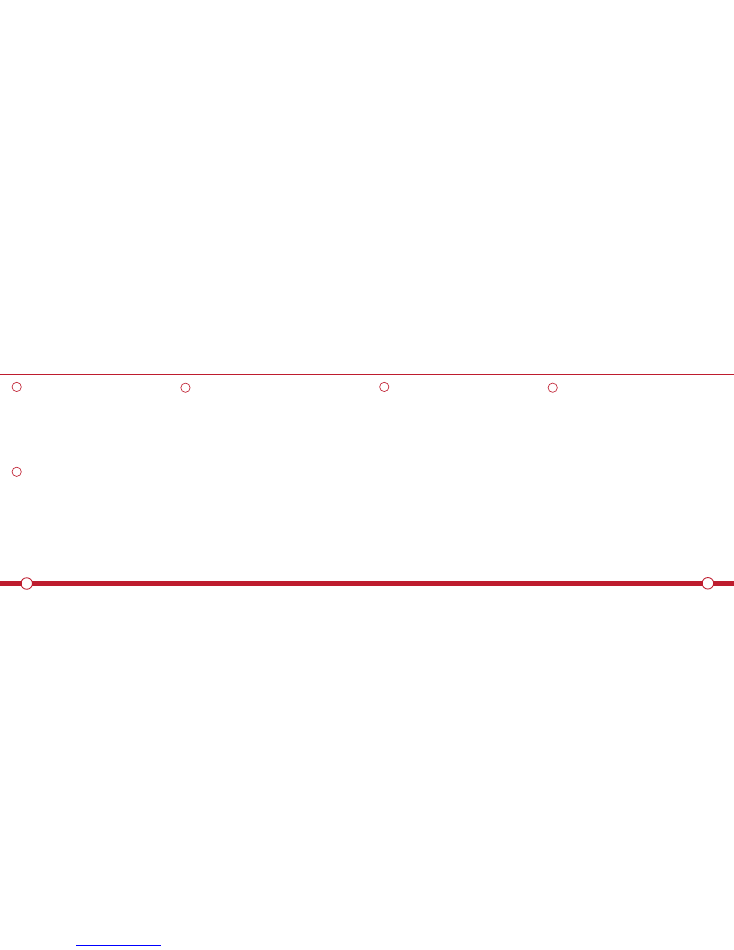
6
7
FOR SAFE OPERATION
FOR SAFE OPERATION
IMPORTANT
•
Read this manual carefully until you completely understand and can
follow all safety and operating instructions
•
Keep this manual handy so that you may refer to it later whenever
questions arise. Also note, if you have any questions which cannot be
answered herein, contact Parker Brand.
•
Always be sure to include this manual when selling, lending or other-
wise transferring ownership of this product.
•
Never allow children or anyone unable to fully understand the direc-
tions given in the manual to use the machine.
WORKING CIRCUMSTANCE
•
Never start the engine inside a closed room or building. Exhaust gas-
es contain dangerous carbon monoxide.
•
Never use the product
1. when the ground is slippery or when you can’t maintain a
stead posture.
2. at night, at times of heavy fog, or at any other times when
your field of vision might be limited and it would be difficult
to gain a clear view of the working area.
3. during rain storms, during lightening storms, at times of
strong gale-force winds, or at any other time when weath-
er conditions might make it unsafe to use the product.
WORKING PLAN
•
You should never use this product when under the influence of alco-
hol, when suffering from exhaustion or lack of sleep, when suffering
from drowsiness as a result of taking cold medicine or at any other
time when a possibility exists that your judgment might be impairs or
that you might not be able to operate the product properly and in a
safe manner.
•
When planning your work schedule, allow plenty of time to rest. Limit
the amount of time over which the product is to be used continuous-
ly to somewhere around 30-40 minutes per session, and take 10-20
minutes of rest between sessions. Also try to keep the total amount
of work performed in a single day under 2 hours.
•
If you don’t observe the working time or working manner repetitive
strain injury could occur,
•
If you feel discomfort, redness and swelling of your fingers or any
other part of your body, see a doctor before getting worse.
•
To avoid noise complaints operate product between 9am and 5pm.
BEFORE STARTING THE ENGINE
•
The area within a perimeter of 15m of the person using the product
should be considered a hazardous area into which no-one should
enter. If necessary, yellow warning rope and warning signs should
be placed around the perimeter of the area. When work is performed
simultaneously by two or more persons, care should be taken to con-
stantly look around or otherwise check for the presence and loca-
tions of other people working so as to maintain a distance between
each person sufficient to ensure safety.,
•
Check the condition of working area to avoid any accident by hitting
hidden obstacles such as stumps, stones, cans or broken glass.
•
Inspect the entire unit for loose fasteners and fuel leakage. Make
sure that the cutting attachment is properly installed and securely
fastened.
•
Be sure to attach the cutting attachment guard securely in place, or
you may injure yourself.
•
Always us the harness. Adjust the harness for comfort before start-
ing the engine. The harness should be adjusted so the left hand can
comfortably hold the handlebar grip approximately waist high.
STARTING THE ENGINE
•
Keep bystanders and animals at least 15m (50ft) away from the oper-
ating point. If you are approached, immediately stop the engine.
•
The product is equipped with a centrifugal clutch mechanism, so the
cutting attachment begins to rotate as soon as the engine is started
by putting the throttle trigger into the start position. When starting
the engine, place the product onto the ground in a flat clear area
and hold it firmly in place so as to ensure that neither the cutting at-
tachment nor the throttle trigger come into contact with any obstacle
when the engine starts.
•
After starting the engine, check to make sure that the cutting attach-
ment stops rotating when the throttle trigger is moved fully back to it’s
original position. If it continues to rotate even after the throttle trigger
has been moved fully back, turn off the engine contact Parker Brand.
i
i
i
i
i

8
9
FOR SAFE OPERATION
FOR SAFE OPERATION
USING THE PRODUCT
•
Grip the handles firmly with both hands using your whole hand. Place
your feet slightly apart (slightly further apart than shoulder width) so
that your weight is distributed evenly across both legs, and always
be sure to maintain a steady, even posture while working.
•
Keep cutting attachment below waist level.
•
Maintain the speed of the engine at the level required to perform cut-
ting work, and never raise the speed of the engine above the level
necessary.
•
If the unit starts to shake or vibrate, turn off the engine and check the
whole unit. Do not use until the problem has been properly corrected.
•
Keep all parts of your body away from rotating cutting attachment
and hot surfaces.
•
Never touch the muffler, spark plug, or other metallic parts of the en-
gine while the engine is in operation or immediately after shutting
down the engine. Doing so could result in serious burns or electrical
shock.
BE CAREFUL OF SURROUNDING PEOPLE
•
Guard against hazardous situations at all times. Warn adults to keep
pets and children away from the area. Be careful if you are ap-
proached. Injury may result from flying debris.
MAINTENANCE
•
In order to maintain your product in proper working order, perform
the maintenance and checking operations described in the manual
at regular intervals.
•
Always be sure to turn off the engine before performing any mainte-
nance or checking procedures.
•
In the event that any part must be replaced or any maintenance or
repair work not described in this manual must be performed please
contact Parker Brand.
•
Under no circumstances should you ever take apart the product or
alter it in any way. Doing so might result in the product becoming
damaged during operation or the product becoming unable to oper-
ate properly.
HANDLING FUEL
•
The engine of our product is designed to run on a mixed fuel, which
contains highly flammable gasoline. Never store cans of fuel or refill
the tank of the unit in any place where there is a boiler, stove, wood
fire, electrical sparks, welding sparks, or any other source of heat or
fire which might ignite the fuel.
•
Never smoke while operating the unit or refilling its fuel tank.
•
When refilling the tank, always turn off the engine and allow it to
cool down. Take a careful look around to make sure that there are no
sparks or open flames anywhere nearby before refuelling.
•
Wipe spilled fuel completely using a dry rag if any spillage occurs
during refuelling.
•
After refuelling, screw the fuel cap back tightly onto the fuel tank and
then carry the unit to a spot 3m or more away from where it was re-
fuelled before turning on the engine.
TRANSPORTATION
•
When hand-carrying the product, cover over the cutting attachment
if necessary, lift up the product and carry it paying attention to the
cutting attachment.
•
Never transport the product over rough roads or long distances by
vehicle without removing all fuel from the fuel tank. If doing so fuel
might leak from the tank during transport.
i
i
i
i
i
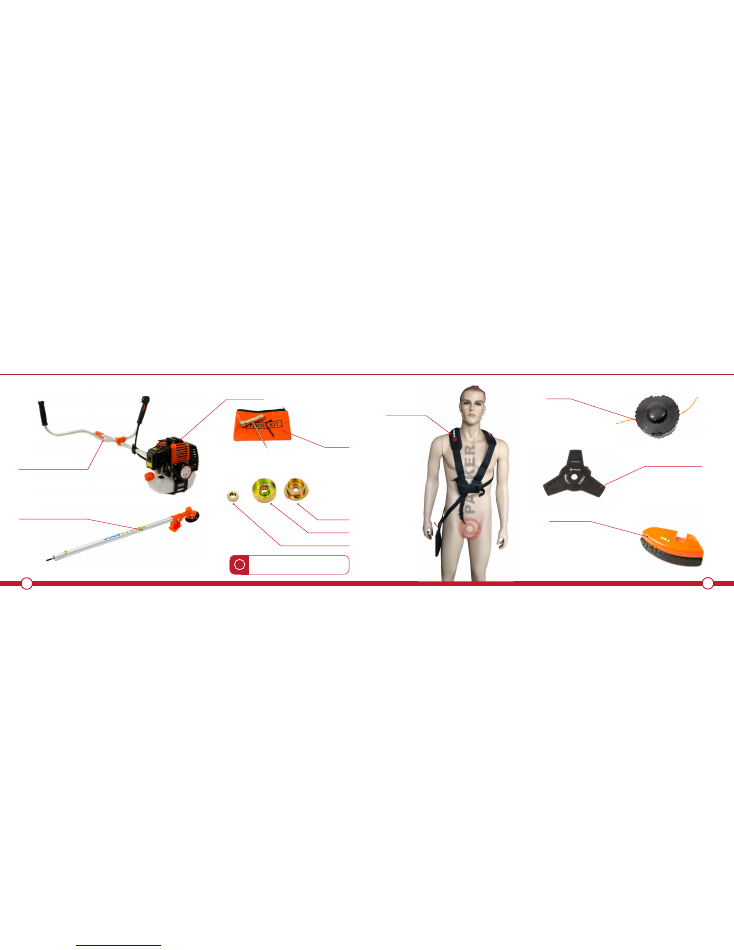
10
OPERATION
WHAT’S IN THE BOX
MAIN ENGINE
BULL HORN HANDLE BARS
LOWER SHAFT
+ SPOOL AND BLADE HUB
+ BRACKET FOR LOWER GUARD
TOOL KIT
+ SPARK PLUG WRENCH
+ ALLEN KEY WRENCH
WASHER ‘A’
WASHER ‘B’
3 TOOTH BLADE NUT
11
WHAT’S IN THE BOX
SAFETY HARNESS
THREE TOOTH BLADE
LOWER GUARD
SPOOL
Washers and nut are pre-installed on the
lower shaft.
i
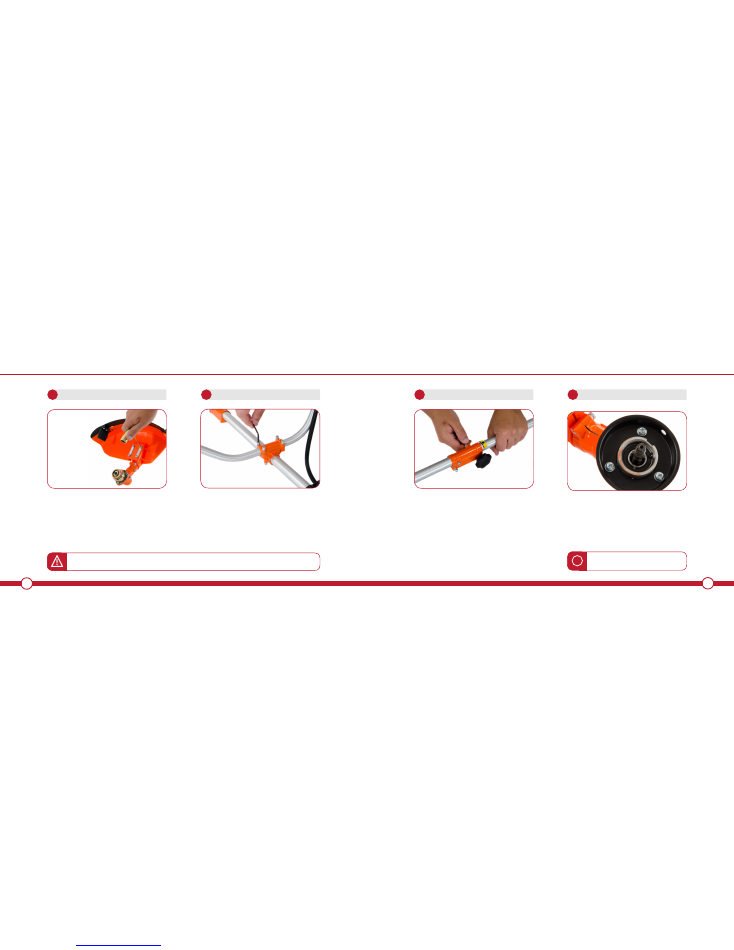
12
13
ASSEMBLY
Attach the guard to the lower shaft using the
screws and tools provided.
Loosen the four screws on the upper cap and
place the bull horn handle inside.
Re-tighten the four screws to secure the handle in
position.
1
ATTACH THE LOWER GUARD
2
ATTACH THE HANDLE
Over-tightening the bolts can cause damage to the screw and/or the machine.
ASSEMBLY
1. Insert the locking knob into the shaft
connector.
2. Pull and hold the locating pin while securing
the lower shaft into the joint
3. Release the pin and rotate the lower shaft
until the joint is locked into position.
4. Secure the joint by tightening the knob.
1. Install the lower collar to the bottom of the
spool housing using the tools and screws pro-
vided.
2. Ensure the hole on the collar and spool
housing are aligned as illustrated above.
3
JOIN THE SHAFTS
4
INSTALL THE COLLAR
This step may already be complete.
i
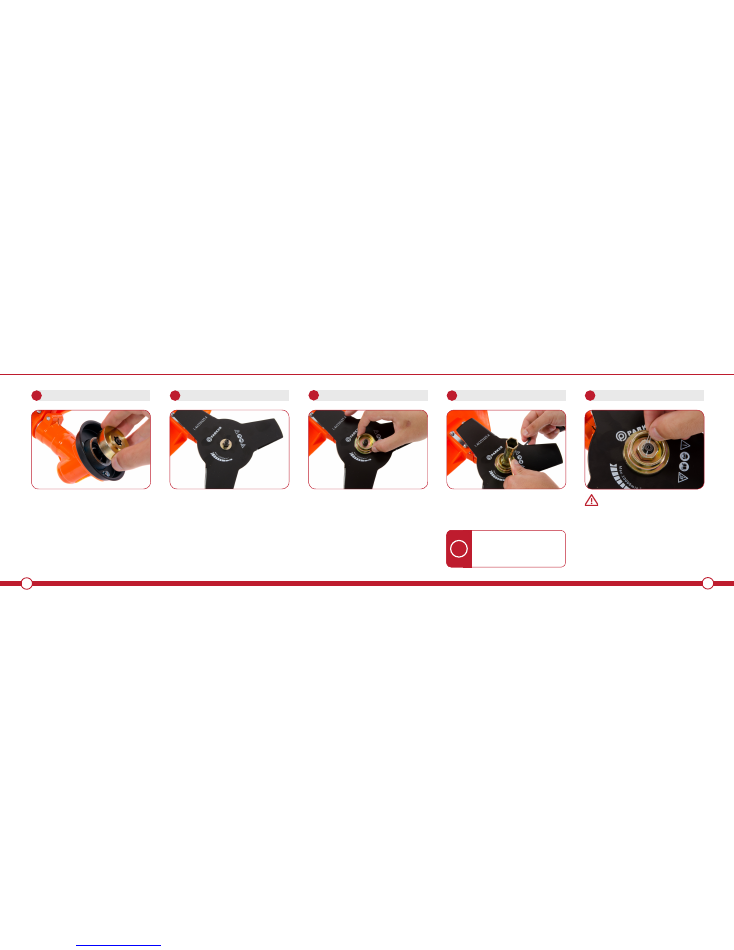
14
15
INSTALLING THE 3 TOOTH BLADE
Install washer “A” as illustrated above. Align the
hole in the washer with the hole in the spool collar.
Lock the axle by placing the allen key inside the
locating hole of the black collar and tighten the
locking nut in an anti-clockwise direction using the
wrench provided.
Place the three tooth blade so the centre hole sits
within washer “A”.
It is important that the blade sits correctly with-
in washer “A” and not in an off-centered position
which can cause excessive vibration and prema-
ture damage to the lower shaft.
1
INSTALL LOWER WASHER
2
ATTACH THE BLADE
3
INSTALLING THE 3 TOOTH BLADE
Install washer “B” as illustrated above to secure
the blade to the shaft.
Lock the axle by placing the allen key inside the
locating hole of the collar and tighten the locking
nut using the wrench provided, turning anti-clock-
wise until secured tightly.
IMPORTANT!
Place the split pin (where applicable) inside the
thread to prevent the nut coming loose.
4
SECURE UPPER WASHER
TIGHTEN LOCKING NUT
5
SECURE THE NUT
This is reverse threaded so to
tighten the nut you will have to turn
in an anti-clockwise direction and
clockwise to loosen.
i
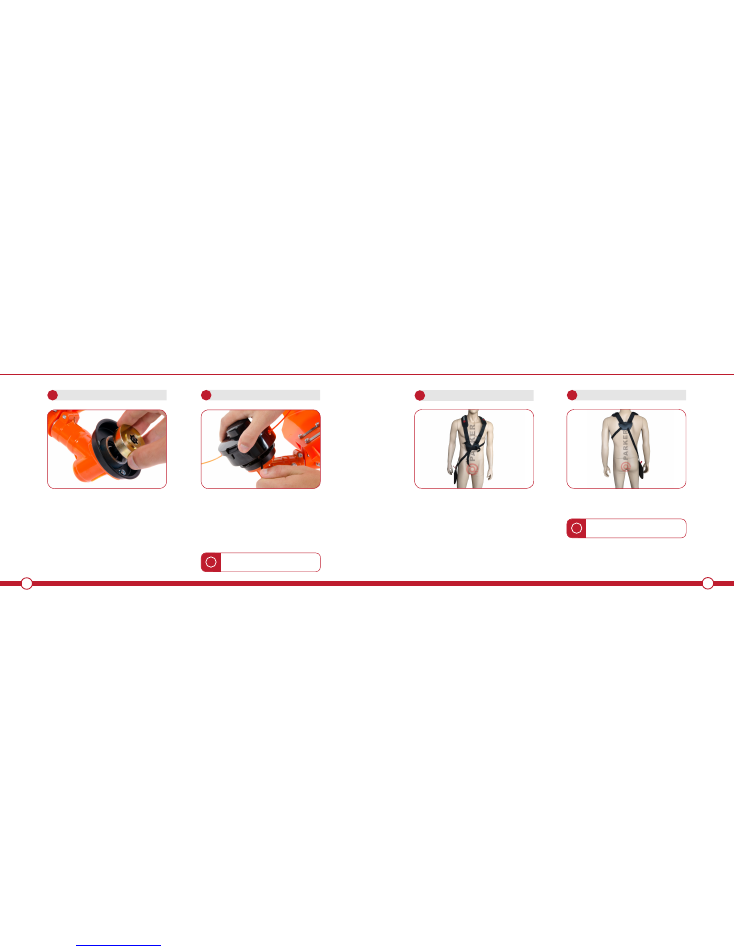
16
17
INSTALLING THE SPOOL
2
ATTACH SPOOL HOUSING
1
INSTALL LOWER WASHER
Install washer “A” as illustrated above. Align the
washer with the hole on the spool collar.
The purpose of this washer is to enable tightening
of the nut by locking the shaft, this is done by
inserting the allen key through the hole in the spool
collar and into the hole in washer “A”.
Lock the axle by placing the allen key inside the
locating hole of the collar and wind the spool onto
the thread by turning anti-clockwise.
Please ensure that the spool is secure and closed
correctly prior to use.
To remove the spool follow the above
directions in reverse.
i
WEARING THE HARNESS
1
PLACE OVER HEAD
2
ADJUST THE HARNESS
Your harness is designed to be worn with the
brush cutter hung on the right hand side.
Adjust the harness so it is secured against your
body.
Mannequin not included.
i
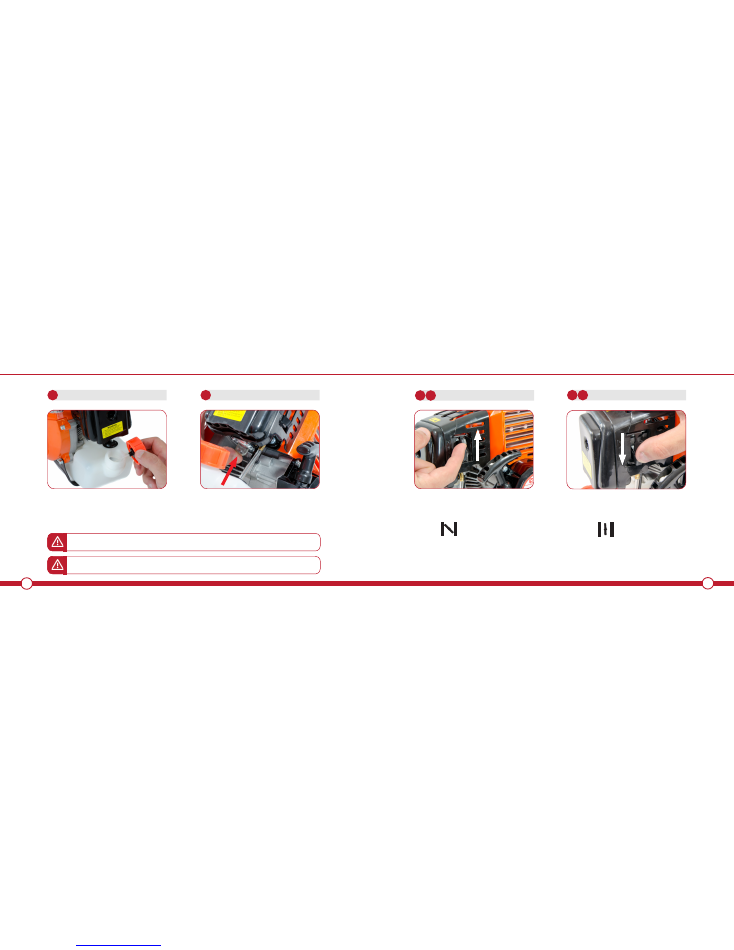
18
19
STARTING THE ENGINE
2
PRIME THE CARBURETTOR
1
FILL THE TANK
Remove the fuel cap and fill the tank to no more
than 80% capacity.
Fuel should be a mixture of unleaded petrol and 2 stroke
oil mixed at a ratio of 40:1 (Unless otherwise instructed).
Prime the carburettor by repeatedly pressing the
bulb located underneath the air filter housing.
The fuel cap must be secure and tight for the car-
burettor to prime.
STARTING THE ENGINE
3
CLOSE CHOKE (COLD START)
3
OPEN CHOKE (WARM START)
For cold engine starts close the choke by sliding
the lever upwards.
For warm engine starts open the choke by sliding
the lever downwards.
A
B
CHOKE CLOSED
CHOKE OPEN
The product is equipped with centrifugal clutch mechanism, so the cutting attachment begins to rotate as
soon as the speed of the engine is increased.
Fuel is highly flammable and care must be taken to avoid any spillages and contact with naked flames.
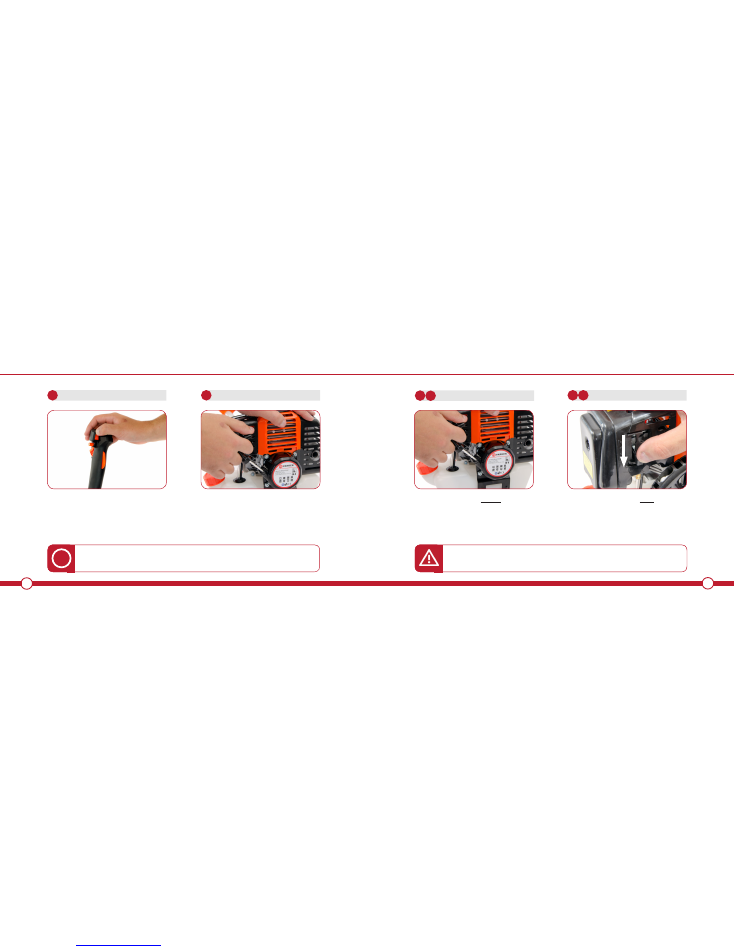
20
21
STARTING THE ENGINE
5
TENSION THE RECOIL
4
SWITCH ON
Enable power to the spark plug by placing the on/
off switch to position “I”
“I” has to be in downward position.
Place the unit on the ground and using your left
foot to secure the shaft to the ground while using
your right hand to pull the recoil starter handle
outwards until tension is felt.
Over-choking can make the engine hard to start due to excess fuel. When the engine failed to start after
several attempts, open the choke and repeat pulling the rope, or remove the spark plug and dry it.
i
STARTING THE ENGINE
6
START THE ENGINE (COLD START)
6
START THE ENGINE (WARM START)
B
A
Make sure that the choke is
CLOSED
1. Pull the recoil starter twice in quick
succession.
2. Proceed to Step 6B and follow instructions for
warm start.
1. Make sure that the choke is
OPEN
2. Pull the recoil starter in quick succession until
the engine starts.
Do not pull the starter cord to the end and avoid releasing the handle while fully extended.
Both of the above can cause premature damage to the mechanism.
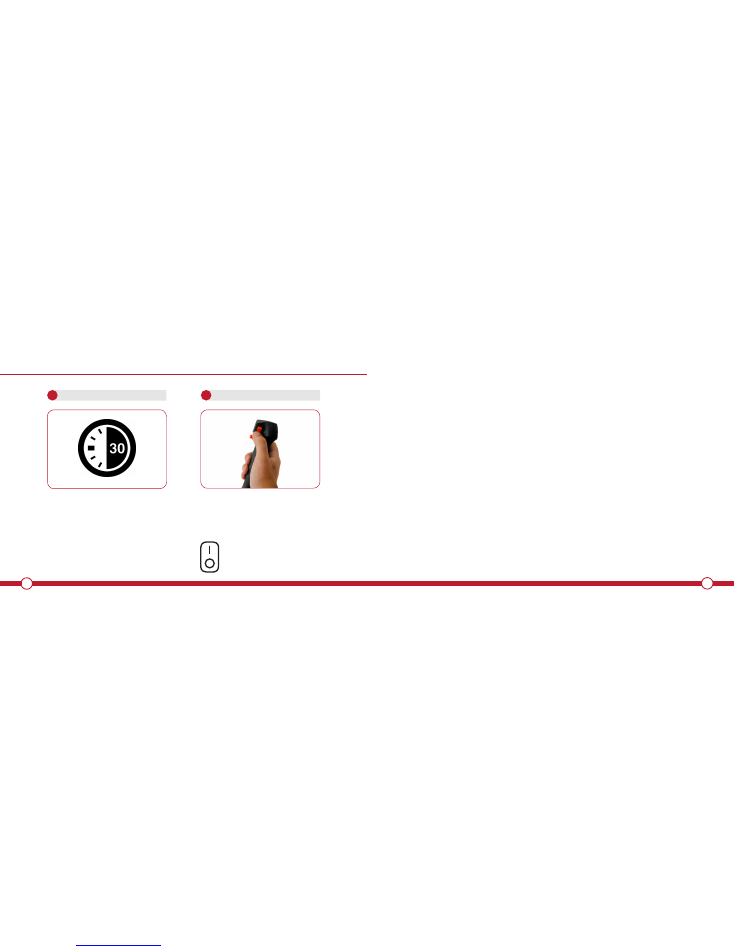
22
STOPPING THE ENGINE
2
SWITCH OFF
1
PREPARE TO STOP
Release the throttle trigger and let the engine idle
for 30 seconds.
This allows the engine to cool down and return to
optimum operating temperature.
Turn the engine off by placing the on/off switch to
position “O” as illustrated above.
When restarting the engine after immediately
stopping it, leave the choke open to prevent
flooding the engine.
THIS PAGE HAS INTENTIONALLY BEEN LEFT BLANK
23
ON
OFF
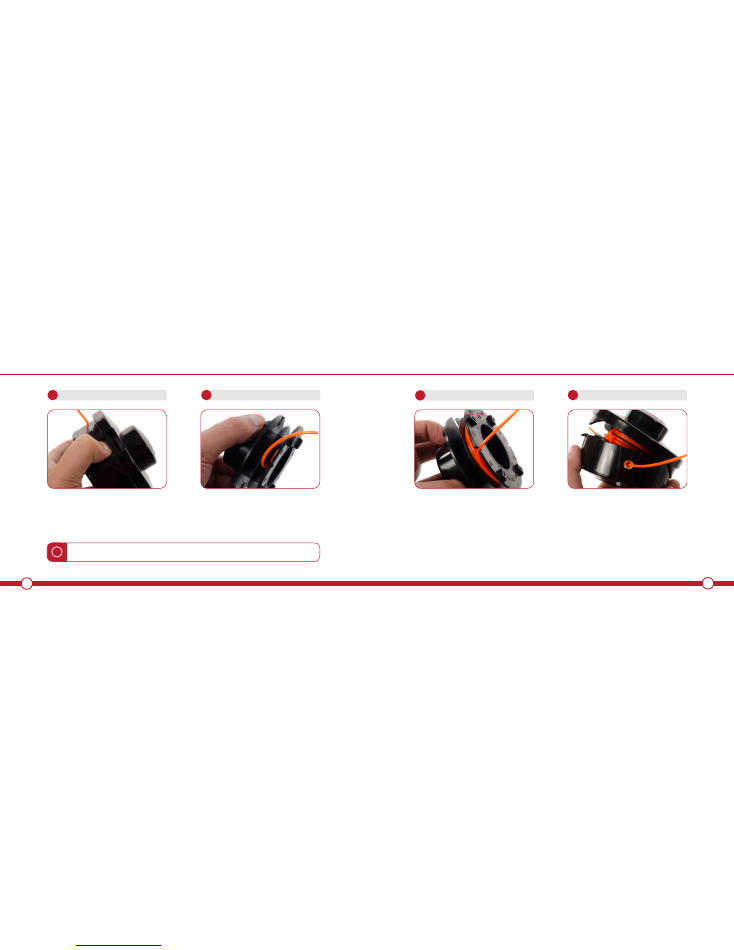
24
OPEN & REPLACE SPOOL WIRE
2
PREPARE WINDINGS
1
OPEN THE SPOOL
Open the spool by pressing one of the two clips
to loosen the cover. Once loose firmly press the
second clip and remove the spool cartridge from
inside the housing.
The cartridge consists of two windings which
need to be wound in the direction shown on the
body. Secure the replacement wire to the cartridge
as shown.
Replacement strimmer wire should be 2.4mm in diameter.
I
25
OPEN & REPLACE SPOOL WIRE
3
SECURE WINDING
4
REPEAT STEP 2 & 3
Secure the winding inside one of the two lugs to
grip the cord and prevent it unwinding.
Repeat steps 2 & 3 for the second winding and
thread back through the eyelets. Securing the
cover by repeating ‘Step 1’ in reverse.
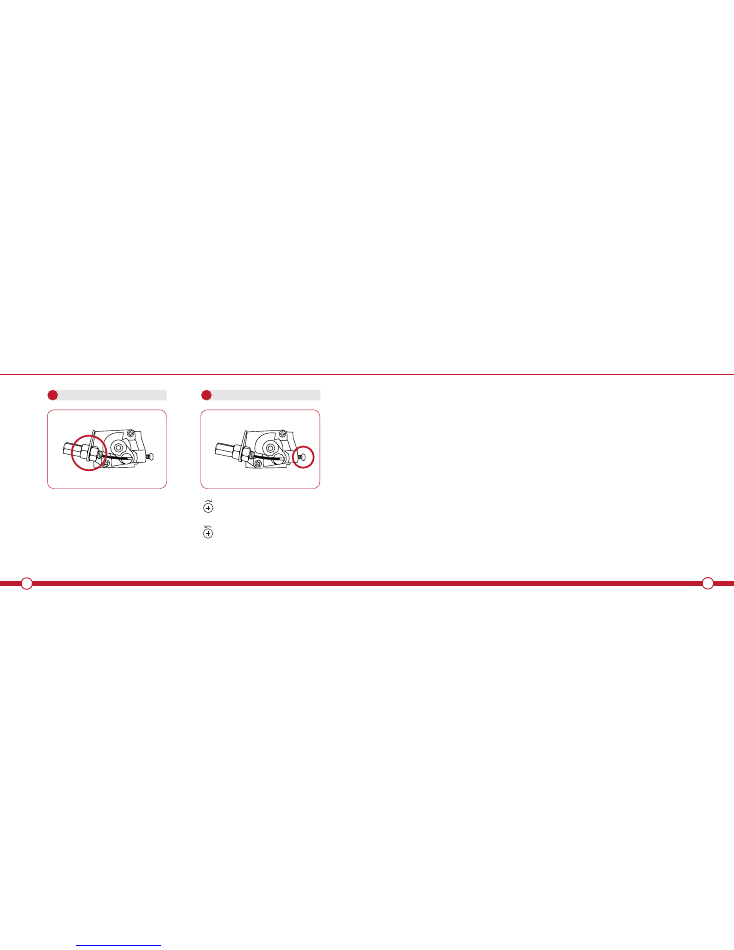
26
27
ADJUSTING THROTTLE CABLE & IDLING SPEED
2
ADJUSTING IDLING SPEED
1
ADJUSTING THROTTLE CABLE
Your throttle cable may become slack after
prolonged use and adjustment may be required.
To adjust the throttle cable loosen or tighten the
nuts illustrated above. Always allow 1-2mm of play
to ensure the cable is not under load at all times.
When the engine tends to stop frequently
at idling mode, turn the idle speed
adjuster clockwise.
When the cutting head keeps rotating
after releasing the trigger, turn the idle
speed adjuster counter clockwise
THIS PAGE HAS INTENTIONALLY BEEN LEFT BLANK
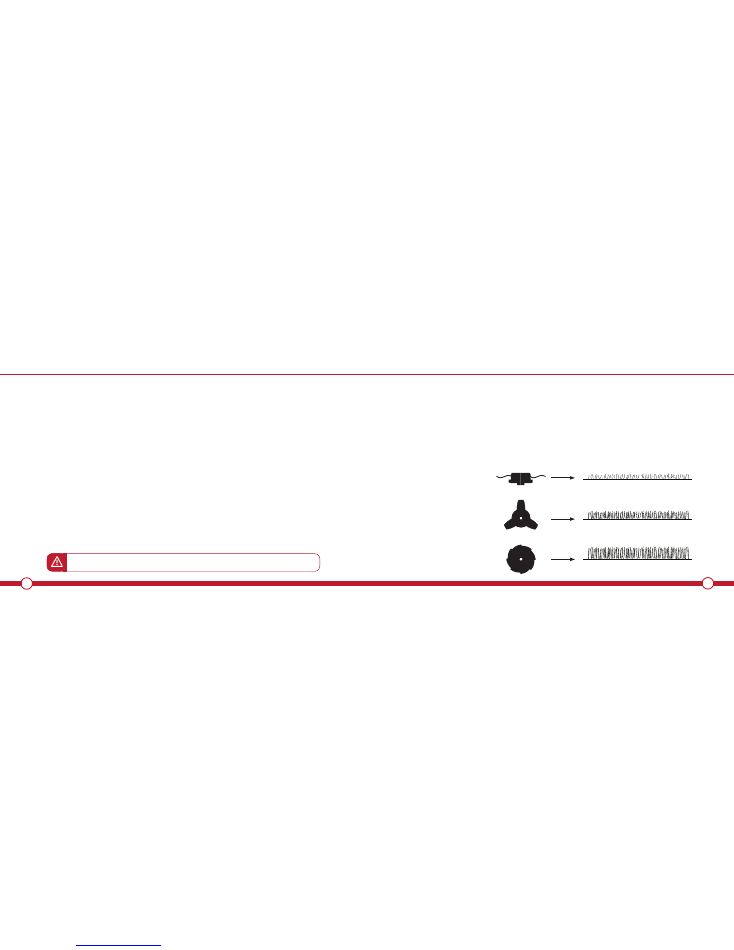
28
29
OPERATION
TRIMMING GRASS AND WEEDS
1. Hold the unit so the head is off the ground and is
tilted about 20 degrees toward the sweep
direction.
2. Sweep from left to right to avoid thrown debris.
3. Use a slow, deliberate action to cut heavy growth.
4. Never swing the unit hard as you are in danger of
losing your balance or control of the unit.
5. Try to control the cutting motion with your hip
rather than placing the full workload on your
arms and hands.
6. Take precautions to avoid wire, grass and dead,
dry, long-stem weeds from wrapping around the
shaft head.
Such materials can stall the head and cause the
clutch to slip, resulting in damage to the clutch
system if repeated frequently.
CUTTING METHOD
1. Use the front left side for optimal cutting.
2. Guide the blade from your right to left with it
tilted slightly to your left.
3. When mowing a wide area, start working from
your left end to avoid interference of cut grass.
4. The blade may be seized by weeds if the engine
speed is too low, or the blade cuts too deep into
weeds. Adjust the engine speed and cutting
depth according to the type of material being cut.
If grass or other object get caught in the blade,
or if the unit starts to shake or vibrate, turn off
the engine and check the whole unit. Change the
blade if it has been damaged.
Turn off the engine and make sure the blade has
completely stopped before checking the blade
and removing any object that has got caught in.
Always wear eye protection during operation. Never lean over rotating cutting head.
Never swing the unit hard as you are in danger of losing your balance or control of the unit.
OPERATION
CHOOSE THE BLADE
Choose the suitable recommended cutting attach-
ment according to the object to be cut
When replacing blade always be sure to use Parker
Brand products.
When sharpening, removing, or attaching the blade,
be sure to wear thick, sturdy gloves and use only
proper tools and equipment to prevent injury.
ADJUSTING THE LINE LENGTH
Your brush cutter is equipped with a semi-auto
type nylon trimmer head that allows the operator to
advance the line without stopping the engine. When
the line becomes short, lightly tap the head on the
ground while running the engine at full throttle.
Each time the head is bumped, the line advances
about 1 inch (25.4mm). For better effect, tap the head
on bare ground or hard soil. Avoid bumping in thick,
tall grass as the engine may stall by overload.
TWIN LINE SPOOL
Use this for light trimming.
3 TOOTH BLADE
Use this blade for dense growth.
9 TOOTH BLADE
Use this for extremely dense growth.

30
31
OPERATION
OPERATION
OPERATION
1. Check the bolt to fasten the blade and be sure
the bolt has no faults or damage.
2. Be sure that the blade and the holder have been
fastened according to instruction and that the
blade turns smoothly without abnormal noise.
The rotating parts fastened incorrectly may cause
serious injury to the operator.
Make sure that the blade is not bent, warped,
cracked, broken or damaged.
If you find any error to the blade, discard it and
replace with a new one.
Make sure to use the harness and cutting
attachment guard. If not, it is very dangerous when
you slip or lose your balance.
TRANSPORTING THE UNIT
• When you finish cutting in one location and wish
to continue work in another spot, turn off the
engine, lift up the unit and carry it, paying
attention to the blade.
• Never forget to place the protective cover over
the blades while transporting.
• When transporting the unit over long distances,
detach the blade and fasten the unit by ropes.
CONTROLLING BLADE THRUST
Blade thrust can cause serious personal injury.
Carefully study this section. It is important that you
understand what causes blade thrust, how you can
reduce the chance of it, and how you can remain in
control of the unit if blade thrust occurs.
What causes blade thrust:
• Blade thrust can occur when the moving blade
come in contact with an object that it cannot
cut. This contact causes the blade to stop for
an instant and then suddenly move or "bounce"
away from the object that was hit. The operator
can lose control of the unit and the blade can
cause serious personal injury to the operator, or
any person nearby if the blade contacts any part
of the body.
How you can reduce the chance of blade thrust:
• Recognise that the blade thrust can happen. By
understanding and knowing about blade thrust
you can help eliminate the element of surprise
• Cut fibrous weeds and grass only. Do not let the
blade contact materials it cannot cut such as
hard, woody vines, and bushes or rocks, fences,
metal etc.
• Be extra prepared for thrust if you must cut
where you cannot see the blade making contact
such as in areas of dense growth.
• Keep the blade sharp. A dull blade increases the
chance of thrust.
• Avoid feeding the blade too rapidly. The blade
can bounce away from material being cut if the
blade is fed faster than its cutting capability.
• Cut only from your right to your left.
How you can maintain control:
• Keep a good, firm grip on the unit with both
hands. A firm grip can help neutralise thrust.
Keep your right and left hands completely
around the respective handles.
• Keep both feet spread apart in a comfortable
stance and yet braced for the possibility that the
unit could bounce. Do not overreach. Keep firm
footing and balance.
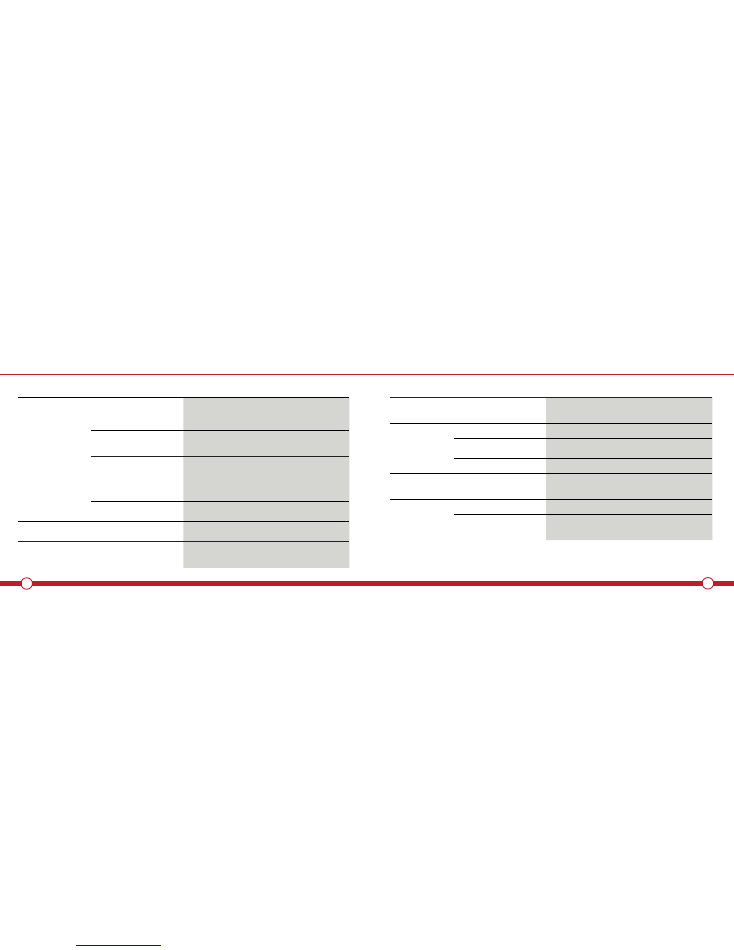
32
33
TROUBLESHOOTING
PROBLEM
POSSIBLE CAUSE
SOLUTION
Engine will not start
No spark
To check for spark: Disconnect the spark plug wire. Reattach the spark
plug wire and lay spark plug on metal cylinder. Pull the starter rope and
watch for spark at spark plug tip. If there is no spark, repeat test with a
new spark plug
No fuel
Push primer bulb until bulb is full of fuel. If bulb does not fill, primary
fuel delivery system is blocked. Contact a service dealer. If primer bulb
fills, engine may be flooded (see next item)
Flooded engine
Remove spark plug, turn trimmer so spark plug hole is aimed at the
ground. Move choke lever to “RUN” and pull starter cord 10 to 15 times.
This will clear excess fuel from engine. Clean and reinstall spark plug.
Pull starter three times with choke lever at “RUN”. If engine does not
start, move choke lever to “CHOKE” and repeat normal starting proce-
dure. If engine still fails to start, repeat procedure with a new spark plug
Starter rope pulls harder now than
when new
Contact Parker Brand
Engine starts but will not
accelerate
Carburetor requires adjustment
Contact Parker Brand
Engine starts but will cut
out when the throttle is
pressed
Choke is in start/closed position
When the engine is running the choke should remain open (the down-
wards position)
TROUBLESHOOTING
PROBLEM
POSSIBLE CAUSE
SOLUTION
Engine starts but will
only run at high speed
at half choke
Carburetor requires adjustment
Contact Parker Brand
Engine does not reach
full speed and emits
excessive smoke
Check oil fuel mixture
Use fresh fuel and the correct 2-cycle oil mix
Air filter dirty
Clean air filter. Refer to “Replacing and
Cleaning Air Filter” earlier in this manual
Carburetor requires adjustment
Contact Parker Brand
Engine starts, runs,
and accelerates but
will not idle
Carburetor requires adjustment
Contact Parker Brand
Spool will not unwind
String welded to itself
Lubricate with silicone spray
Not enough string on spool
Install more string. Refer to “String Replacement”
earlier in this manual
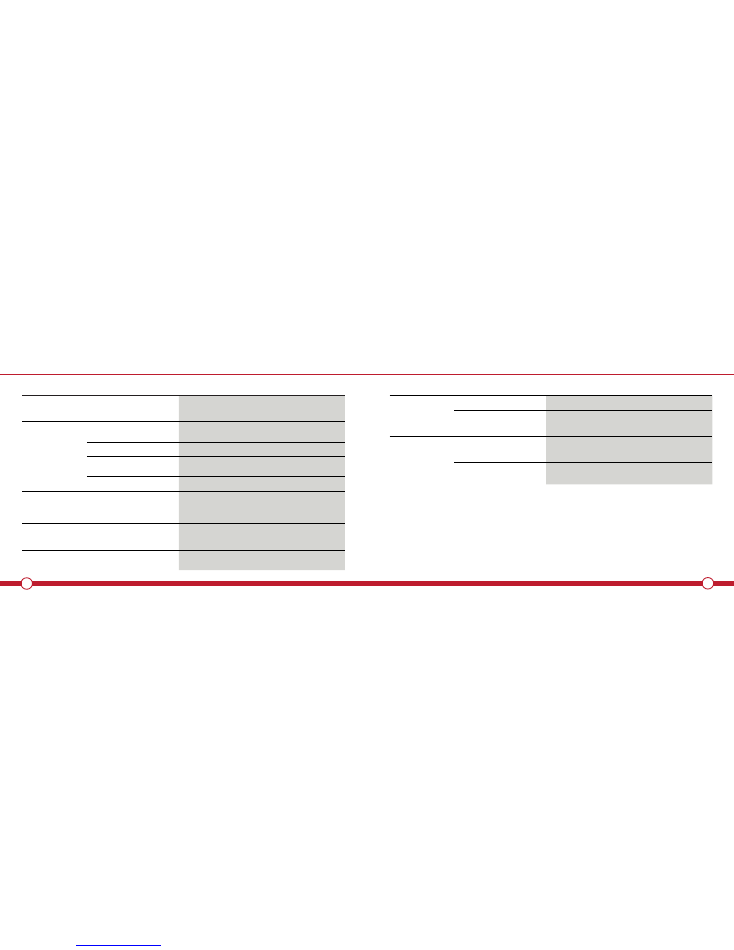
34
35
TROUBLESHOOTING
PROBLEM
POSSIBLE CAUSE
SOLUTION
Spool retainer hard to
turn
Screw threads dirty or damaged.
Clean threads and lubricate with grease - if no improvement,
replace spool retainer
Oil drips from muffler
Operating trimmer at part
throttle
Operate trimmer at full throttle
Check oil/fuel mixture
Use fresh fuel and the correct 2-cycle oil mix
Air filter dirty
Clean air filter. Refer to “Replacing and Cleaning Air
Filter” earlier in this manual
Carburetor requires adjustment
Turn mixture needle clockwise 1/16 turn
Spool / Three Tooth
Blade does not rotate
when engine speed is
increased
Top and bottom shafts are not
correctly engaged.
Remove the bottom shaft and re-insert ensuring the joint is correctly
connected and engaged.
Excessive vibration
is felt when using the
three tooth blade
Top and bottom shafts are not
correctly engaged
Remove the bottom shaft and re-insert ensuring the joint is correctly
connected and engaged.
Three tooth blade is not installed
centrally
Reinstall the three tooth blade ensuring the blade is installed centrally
and with the correct washers
TROUBLESHOOTING
PROBLEM
POSSIBLE CAUSE
SOLUTION
Spool will not unwind
String welded to itself
Lubricate with silicone spray
Not enough string on spool
Install more string. Refer to “String Replacement”
earlier in this manual
Grass wraps around
shaft housing and
string-head
Cutting tall grass at ground
level
Cut tall grass from the top down
Operating trimmer at part
throttle
Operate trimmer at full throttle
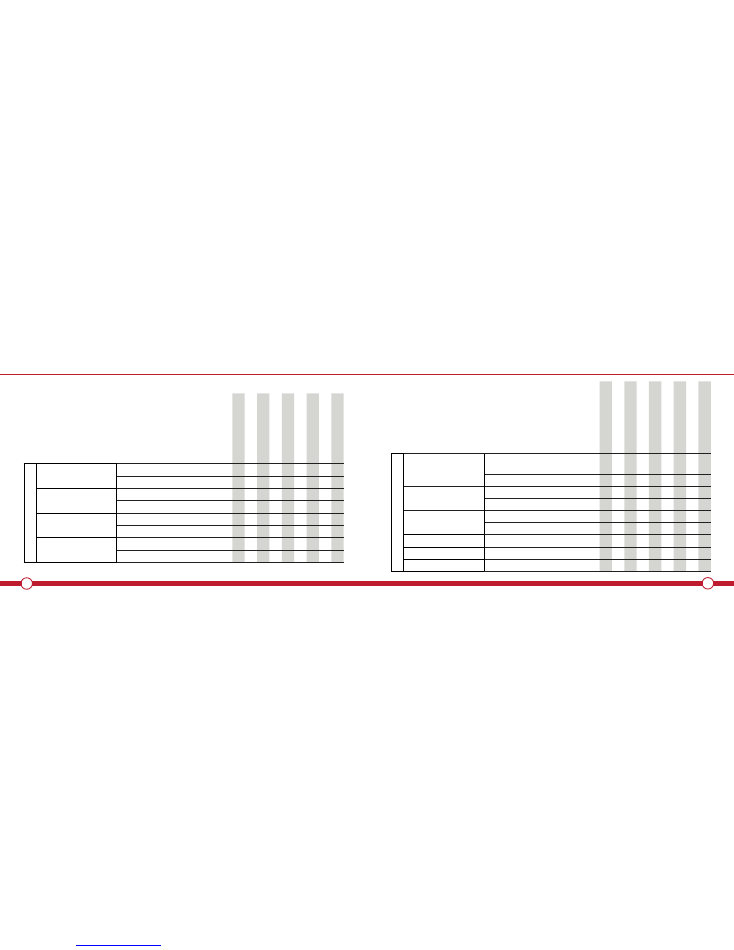
36
37
MAINTENANCE & CARE
MAINTENANCE & CARE
Be
fore s
tar
ting w
ork
Aft
er f
ini
shing w
ork or d
aily
Aft
er e
ach re
fuelling s
top
W
eekly
M
ont
hly
Ye
arly
If problem
If d
am
age
d
As re
quire
d
EN
GI
N
E
Air Filter
Clean
X
X
Replace
X
Manual fuel pump (if fitted)
Check
Have repaired by servicing dealer
Pickup body in fuel tank
Check
X
Replace
X
X
X
Gearbox Lubrication
Check
X
X
X
Replenish
X
Be
fore s
tar
ting w
ork
Aft
er f
ini
shing w
ork or d
aily
Aft
er e
ach re
fuelling s
top
W
eekly
M
ont
hly
Ye
arly
If problem
If d
am
age
d
As re
quire
d
EN
GI
N
E
Carburetor
Check idle adjustment – the cutting
attachment must not rotate
X
X
Adjust idle speed
X
Spark Plug
Readjust electrode gap
X
Replace after every 100 operating hours
Cooling Inlets
Visual inspection
X
Clean
X
Fuel Tank
Clean
X
X
Air Filter
Clean
X
Fuel Filter
Clean
X
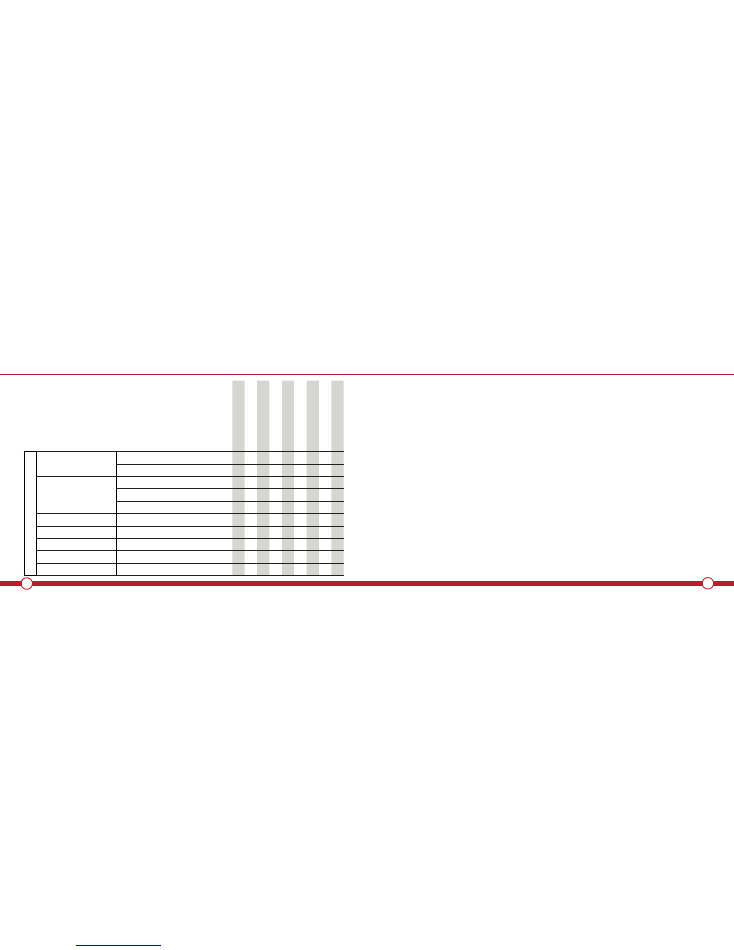
38
39
MAINTENANCE & CARE
Be
fore s
tar
ting w
ork
Aft
er f
ini
shing w
ork or d
aily
Aft
er e
ach re
fuelling s
top
W
eekly
M
ont
hly
Ye
arly
If problem
If d
am
age
d
As re
quire
d
O
TH
ER
Complete machine
Visual inspection (condition, leaks)
X
X
Clean
X
Cutting Attachment
Visual inspection
X
X
Replace
X
Check tightness
X
X
Cutting Attachment Guard
Attach
X
Control Handle
Check operation
X
X
Metal Cutting Attachment
Sharpen
X
X
All accessible screws and nuts
Re-tighten
X
X
Anti-vibration Elements
Check
X
X
X
THIS PAGE HAS INTENTIONALLY BEEN LEFT BLANK
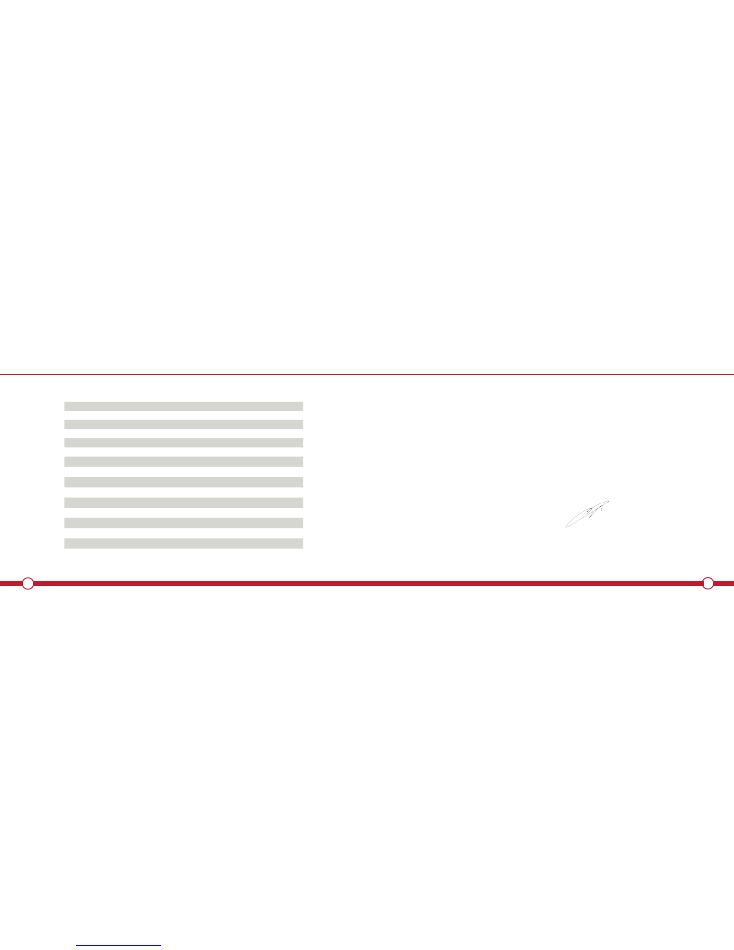
41
40
Engine:
10mm
Model
1E44F-5
Displacement
52,0cm3
Fuel
Mixture (Gasoline 40: Oil 1)
Carburetor
Diaphragm type
Ignition System
Transistor Controlled Flywheel Magneto
Spark Plug
LD BM6A
Fuel Tank Capacity (cm)
1.2 Litres
Starter
Recoil
Clutch
Centrifugal
Cutting Head Rotating Direction
Counter-Clockwise (Operator View)
3 Tooth Blade Size
1.4 x 255 x 254
Spool Wire Size
2.4mm
Overall size (L x W x H)
1860 x 610 x 520mm
Dry weight
8.5kg
SPECIFICATIONS
DECLARATION OF CONFORMITY
Description & Function:
52cc Petrol Brush Cutter
Model/Type:
PGBC-5200
Manufacturing Date/Serial Number:
2017
Conforms to the following Directives:
☑ 2006/42/EC Machine Directive (MD)
☑ 2004/108/EC Electromagnetic Compatibility Directive (EMC)
☑ 2000/14 EC & 2005 /88 EC Directive of Emission
☑ 2000/14 EC & 2005 /88 EC Directive of EU Noise
Manufacturer’s authorised representative within the EC:
Parker Products Ltd.
Richmond Park
Richmond Road
Louth
LN11 0FU
Conforms to the requirements of the Directives, as
indicated, and the following harmonised standard(s):
☑ EN ISO 11681 - 1:2011
☑ EN ISO 14982 - 2009
☑ EN ISO 3744 - 1995
☑ EN ISO 9207 - 1995
EC type-approved No:
e11*97/68SA*2010/26*2712*00 (EUII Emission)
Technical file complied by:
Parker Products Ltd
Being the responsible person appointed by the manufacturer.
Signed:
Date:
01/01/17
Name:
Jason Parker
Position:
Managing Director

WWW.PARKERBRAND.CO.UK
PGBC-5200
Rev 1.0
July 2017